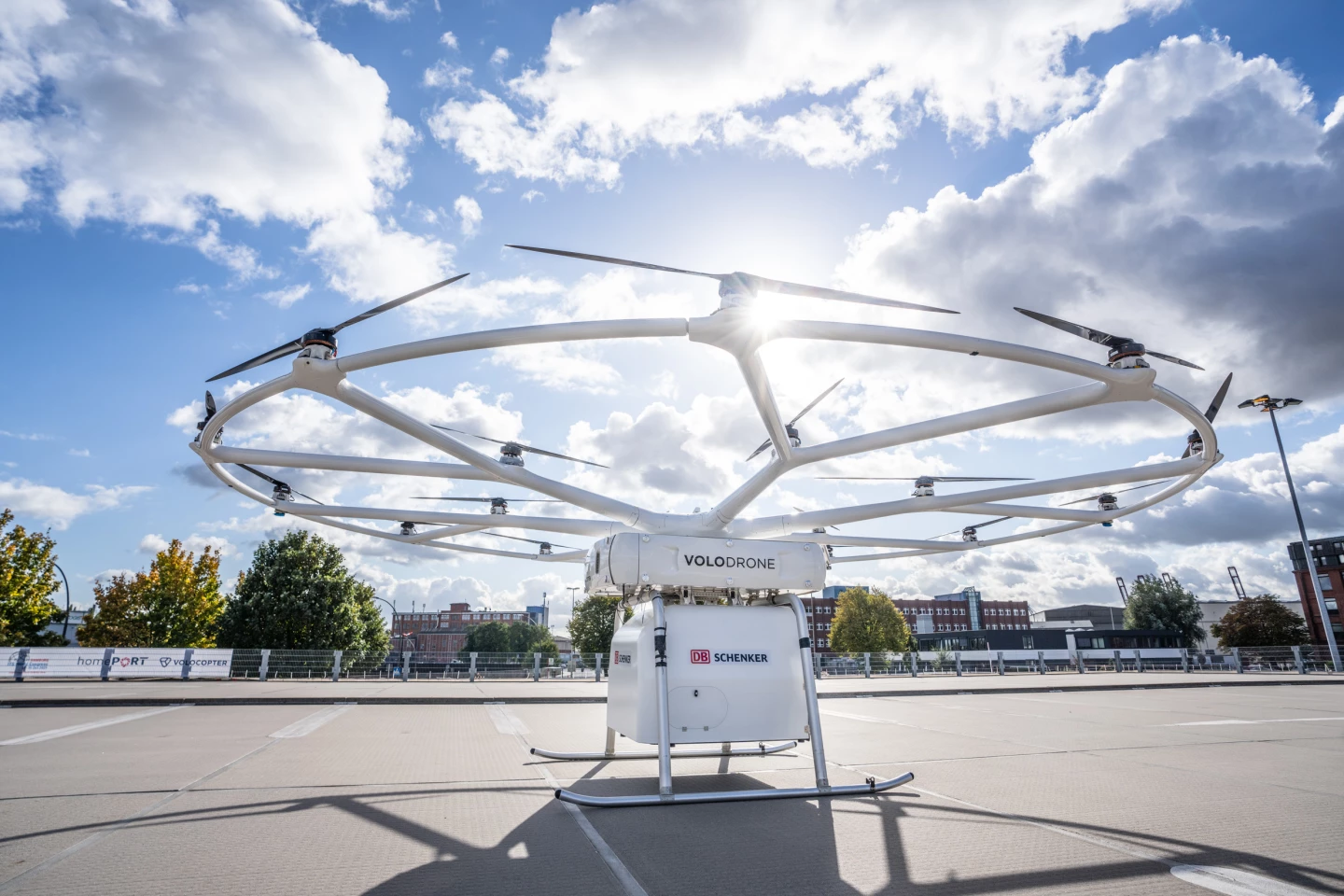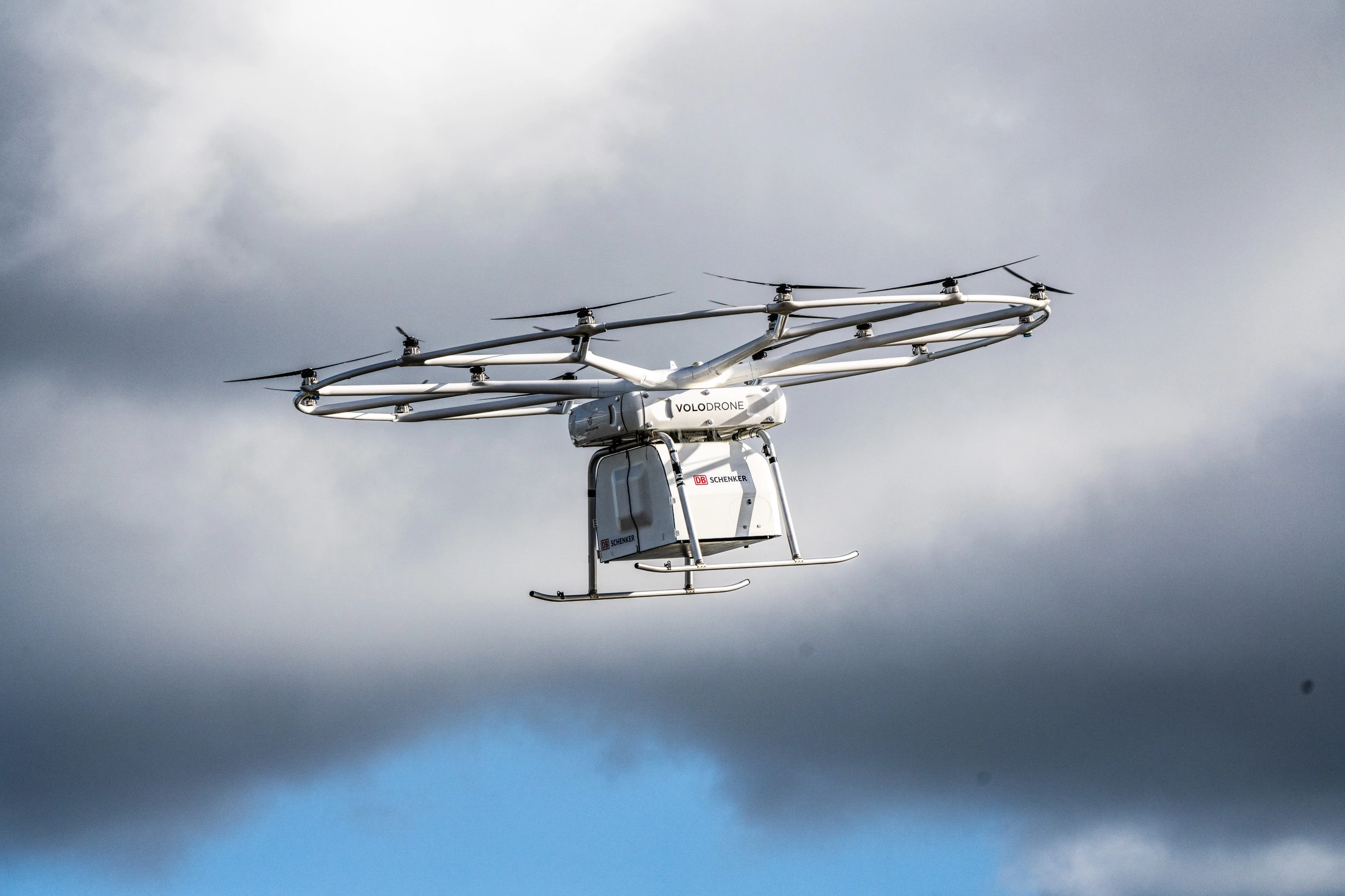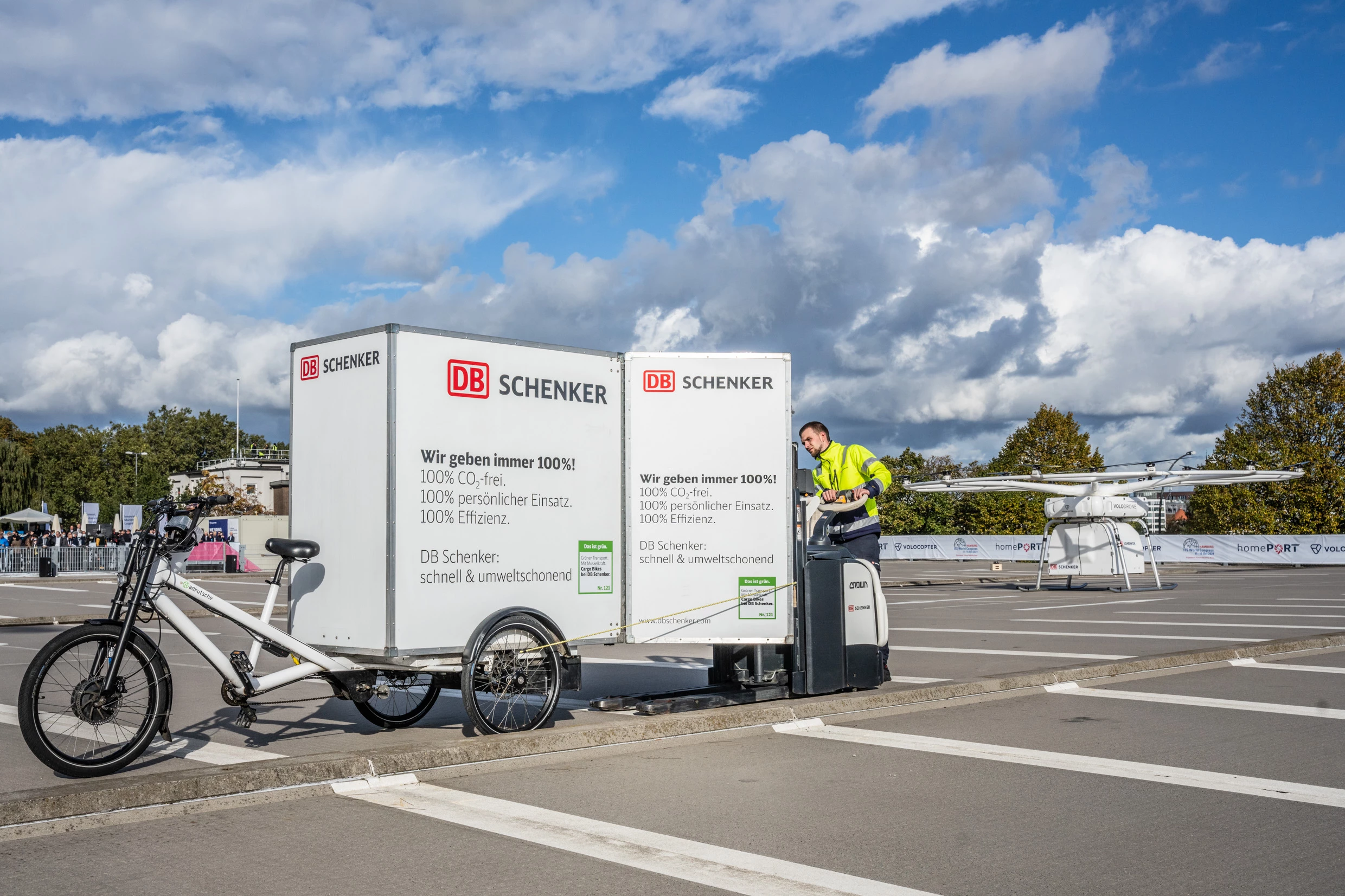Better known for its work developing audacious 18-rotor flying taxis to solve congestion in city centers, Volocopter is adapting its expertise in electric aviation for the purposes of moving heavy cargo. Its giant VoloDrone has now completed its very first public flight, demonstrating how it can safely transport large loads with the help of cargo bikes and play a key role in an all-electric multi-mode delivery system.
Since introducing the VoloDrone in 2019, Volocopter has carried out regular test flights in closed airfields around Germany. Like the Volocopter itself, the giant drone uses 18 rotors, a battery and electric motors to hoist itself into the air, using a rail attachment system in between its landing gear to carry payloads of up to 200 kg (440 lb) over a 40-km (24-mile) range.
On Tuesday, the VoloDrone carried out its first simulated delivery in the public arena, with the exercise undertaken together with logistics firm DB Schenker. This took place as part of ITS World Congress 2021 in Hamburg, and began with the team securing a load to the VoloDrone's undercarriage.

The aircraft then took off, reaching an altitude of 22 m (72 ft) and carrying the load over a three-minute flight to a nearby carpark, where it came down to land safely. From there, electric cargo bikes were used to transfer the load to its destination beneath a nearby decking.
“This first public VoloDrone flight is a strong sign for Volocopter´s leading position in the UAM (urban air mobility) industry," says Florian Reuter, CEO of Volocopter. "We are the only UAM company offering solutions for passengers and goods that are flying fully scaled and publicly around the world. Our VoloDrone will make existing logistics processes more robust, efficient, and sustainable. DB Schenker is an invaluable partner in our endeavor to untap the massive potential of our VoloDrone’s logistics use cases.”
As it continues carrying out test flights of the VoloDrone along with its passenger aircraft, Volocopter is working on the infrastructure side of things to support the operations of these vehicles. These could take the shape of so-called VoloPort networks where the vehicles can land, swap batteries and pick up people and cargo. The company says today it is planning to launch these sometime in the next two or three years, though there'll be regulations and a certification process for it to navigate before a proper lift-off.
You can check out the first public flight of the VoloDrone in the video below.
Source: Volocopter






